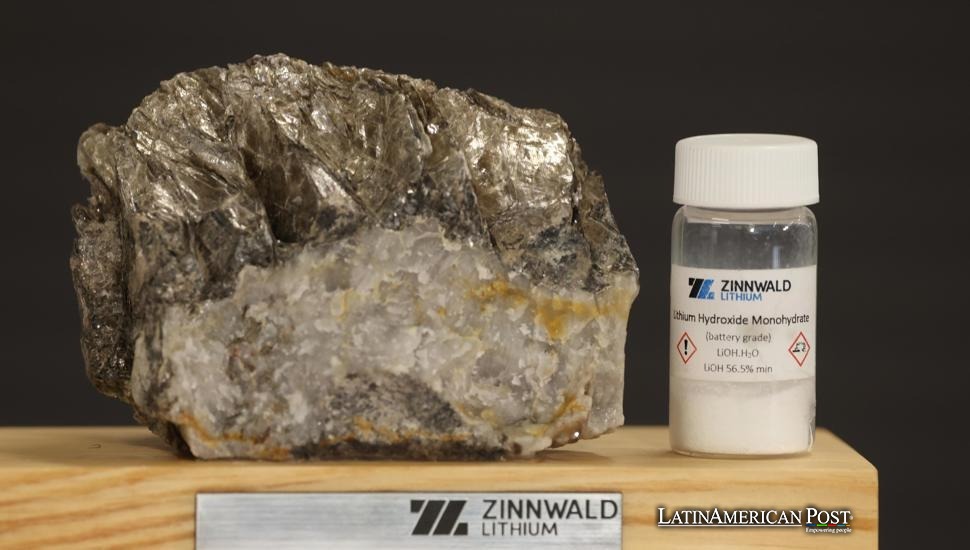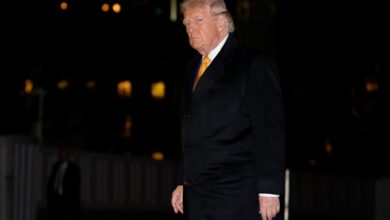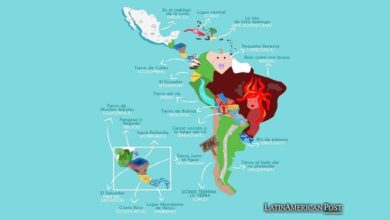South America Powers Europe’s Lithium-Fueled Trade Partnership

The European Union’s trade deal with South America’s Mercosur bloc shows a strategic shift. It gives important access to lithium reserves and reduces trade barriers. Many oppose this partnership, but it holds high stake. This agreement might reshape supply chains for the green economy, and the green economy may see changes.
A Quarter Century in the Making
The European Union’s recent trade agreement with South America’s Mercosur bloc—Brazil, Argentina, Paraguay, Uruguay, and Bolivia—was finalized after 25 years of negotiations. If ratified, it promises to create one of the largest free-trade zones globally, encompassing over 700 million people and 20% of global GDP.
The European Commission sees the deal as a significant economic boon for everyone involved. Ursula von der Leyen, the European Commission President, highlighted that it could save €4 billion every year in export taxes for European companies. The partnership not only matters for money but also has significant political importance. It gives Europe a strong position in a region where Chinese money and trade are growing.
Some people in Europe, especially France and Poland, worry about the agreement’s effect on farming. They fear unfair competition. However, experts say the deal’s real value is accessing South America’s large reserves of critical raw materials. Lithium is a key resource, often called “white gold.”
Lithium’s Strategic Importance
The strategic importance of lithium cannot be overstated. This silvery metal is crucial for electric vehicles, renewable energy storage, and consumer electronics. It has become a cornerstone of the global shift away from fossil fuels, making it a key resource. Latin America supplies 35% of the world’s lithium, with Argentina and Chile leading production.
Federico Steinberg of the Center for Strategic and International Studies emphasized lithium’s role in the agreement. He noted that European firms would gain better access to critical raw materials, high-value services, and public procurement markets in exchange for reduced tariffs on agricultural goods and €1.8 billion in EU funding to support Mercosur’s green and digital transitions.
European demand for lithium has surged as the bloc aims to achieve ambitious climate targets. So far, Europe has dramatically depended on China for important materials needed in green industries. The Mercosur agreement gives another option, promising strong supply lines and lowering reliance on Beijing.
Balancing Economic and Environmental Priorities
As Europe secures access to South America’s lithium reserves, questions arise about the environmental and social impacts of expanded mining. The Gran Chaco Forest and the Andes, home to much of the region’s lithium, face ecological risks from increased extraction. These risks include deforestation, habitat destruction, and potential displacement of indigenous communities. The increased demand for lithium could also lead to water scarcity and pollution in these regions.
Latin American countries are cautiously optimistic. While welcoming the potential economic boost, they stress the need for sustainable practices. Argentine President Javier Milei and Brazilian President Luiz Inácio Lula da Silva, both staunch advocates of the deal, have emphasized the crucial need to balance economic growth with environmental stewardship.
The EU has pledged support for green initiatives through its Global Gateway program. Critics say that rules must protect local plants, animals, and people. Ecosystems and communities should not suffer while seeking raw materials. Indigenous groups and areas rich in various life forms face great risks. Mining expansion affects them a lot. The risks are real and serious.
A Shift in Global Trade Dynamics
The EU-Mercosur agreement sends a strong signal amid growing global trade fragmentation. The Federation of German Industries called it a “strategic message supporting free and rules-based trade.” By spreading out its supply chains, Europe really strengthens its position. The world faces increasing geopolitical competition, and Europe gains a stronger stance this way.
China’s role in Latin America has grown very large. Massive investments in infrastructure and resource extraction drive this growth. Europe sees the Mercosur deal as a chance for economic gains and a way to challenge China’s power.
The agreement’s success depends on approval and following through. Europe must handle opposition and align with green goals. This partnership could reshape relations between Europe and South America if managed well. It may also set an example for fair and eco-friendly trade deals globally, demonstrating that economic growth and environmental protection can go hand in hand.
Also Read: China’s Quest for Lithium in Latin America Faces Major Hurdles
South America’s lithium reserves fuel Europe’s green dreams. The EU-Mercosur agreement displays a blend of economic needs and geopolitical strategies. Challenges still exist, but this partnership offers a chance to reshape trade and environmental rules worldwide.





